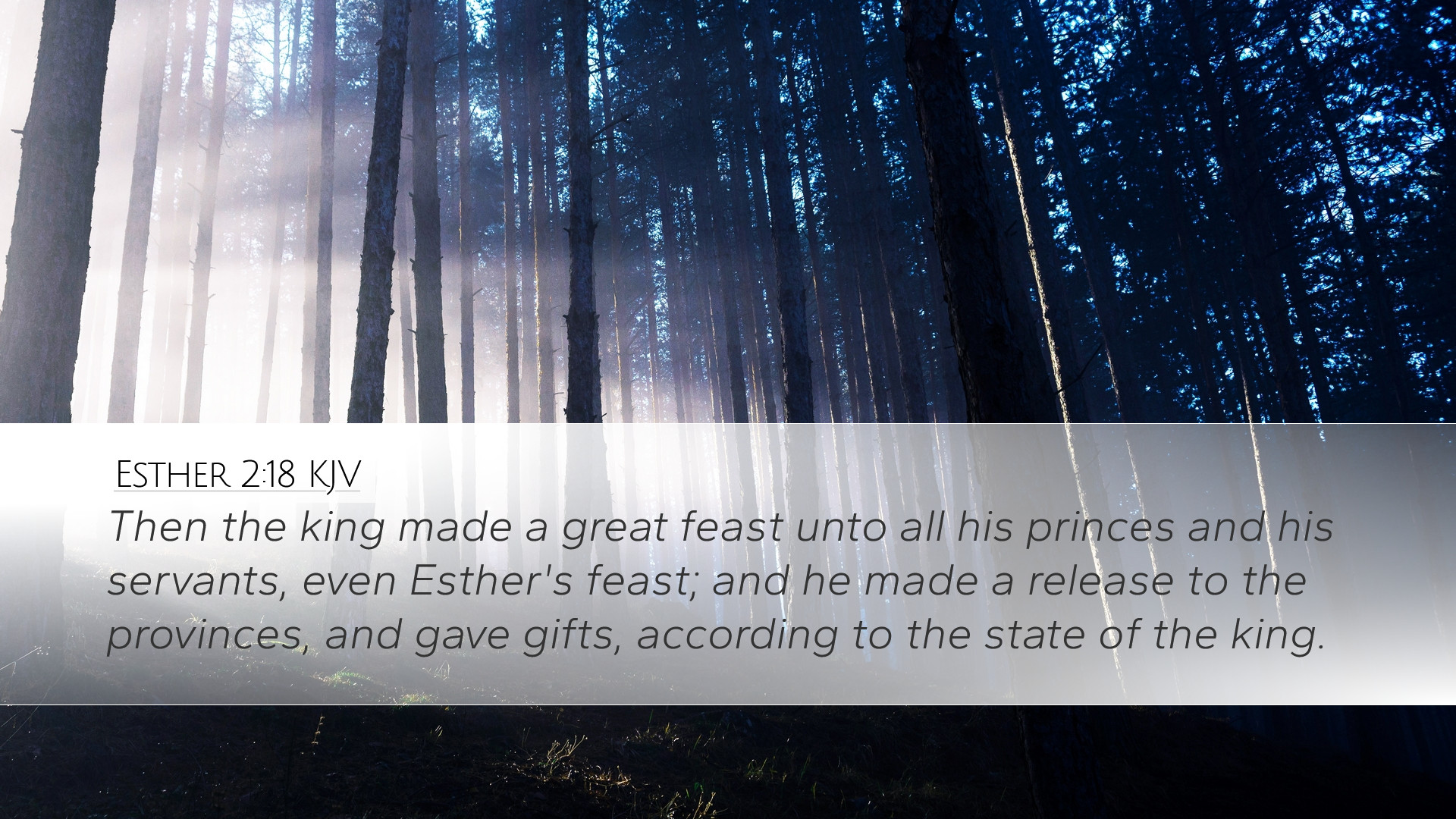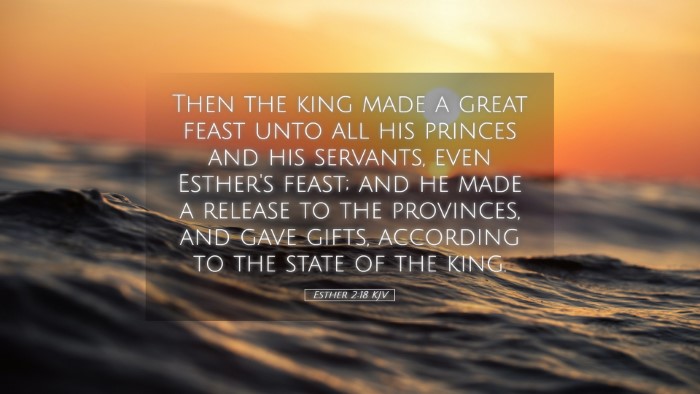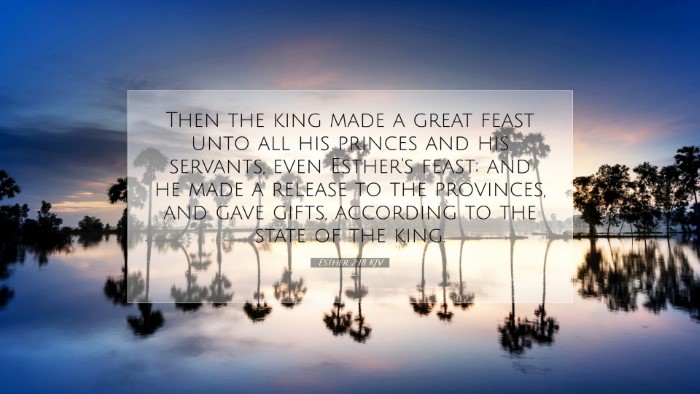Old Testament
Genesis Exodus Leviticus Numbers Deuteronomy Joshua Judges Ruth 1 Samuel 2 Samuel 1 Kings 2 Kings 1 Chronicles 2 Chronicles Ezra Nehemiah Esther Job Psalms Proverbs Ecclesiastes Song of Solomon Isaiah Jeremiah Lamentations Ezekiel Daniel Hosea Joel Amos Obadiah Jonah Micah Nahum Habakkuk Zephaniah Haggai Zechariah MalachiEsther 2:18
Esther 2:18 KJV
Then the king made a great feast unto all his princes and his servants, even Esther's feast; and he made a release to the provinces, and gave gifts, according to the state of the king.
Esther 2:18 Bible Commentary
Bible Commentary on Esther 2:18
Esther 2:18 states: "Then the king made a great feast unto all his princes and his servants, even Esther's feast; and he made a release to the provinces, and gave gifts, according to the state of the king." This verse marks a pivotal moment in the Book of Esther, where the narrative shifts to the favor Esther gains from the king, setting the stage for her future influence and the unfolding of the plot against the Jews.
Contextual Analysis
The Book of Esther is distinct within the Hebrew Scriptures, as it focuses on the lives of individuals and their interplay with divine providence without explicitly mentioning God. Esther, a Jewish woman, rises to be queen in Persia, a geopolitical stronghold of the time. This verse occurs after her selection as queen, where her lineage and heritage as a Jew remain concealed initially.
Historical and Cultural Context
The Persian Empire was known for its opulent courts and influential gatherings, such as feasts, which served both social and political purposes. In the ancient Near East, feasting was a significant cultural practice, often symbolizing favor and loyalty. The king's feast not only celebrates Esther's elevation but also is a display of royal generosity and power.
Commentaries and Insights
-
Matthew Henry:
Matthew Henry emphasizes the king's elaborate celebration following Esther's selection, illustrating how public favor can shift with divine providence. He notes that Esther, having found favor in the king's sight, symbolizes the favor believers find in God's eyes. The mention of "gifts" also speaks to the generosity expected of those in power. Henry draws parallels between Esther's situation and the eventual deliverance of her people, pointing out that God’s hand orchestrates significant events, leading to redemption.
-
Albert Barnes:
Barnes highlights the significance of the "release to the provinces" which the king issued, suggesting it denotes a time of peace and goodwill among the people. Esther’s feast, initiated by the king, represents not only personal triumph but also a newfound hope for the Jewish people under Persian rule. Barnes reflects on the strategic nature of Esther's position now, where her influence could potentially be utilized for the benefit of her people as the narrative unfolds.
-
Adam Clarke:
Clarke provides an analysis of the Hebrew terms used, underscoring their nuance in conveying the level of the king’s joy and the importance of Esther's position. He points out how feasts in the cultural context often served as opportunities for political alliances and maneuvering. In this instance, Clarke suggests that Esther's ascendance represents a divine setup for the upcoming trials the Jewish people will face, hinting at God's overarching plan for deliverance and preservation.
Theological Implications
This verse encapsulates several theological themes significant to understanding God’s providence and human agency:
- The Providence of God: The success of Esther serves as a testament to God's hidden yet ever-present framing of circumstances in the lives of His people. Even in exile, God orchestrates events for a greater purpose.
- Human Agency: Esther's actions and the drama of her rise highlight the role of individuals in God's plan. It encourages readers to understand that faithful living can lead to opportunities to influence others for righteousness.
- Community and Individuality: The connection between Esther's personal gains and the communal fate of her people raises questions about the interplay of individual success and collective welfare in Jewish theology.
Conclusion
Esther 2:18 serves as a powerful reminder to pastors, students, and theologians alike that God works through individuals and their circumstances, often in ways that are not overtly discernible. The feast created by the king isn't just a backdrop for Esther's elevation; it serves as a turning point laden with implications for the Jewish community and the unfolding narrative of salvation. Through a careful reading of this scripture and reflection upon the insights from historical commentaries, one can appreciate the depth of God's providence woven throughout the story of Esther.


